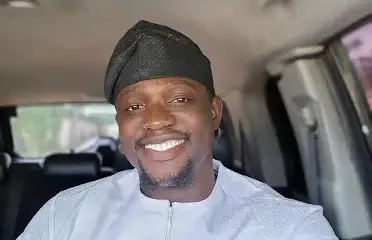Abuja, Nigeria – May 16, 2025
Popular Nigerian social media influencer and controversial activist Martins Vincent Otse, known widely as VeryDarkMan (VDM), was re-arraigned on May 15, 2025, at the Federal High Court in Abuja. Presided over by Justice Musa Liman, the court session marked a new chapter in a long series of legal battles involving cyberbullying, cyberstalking, and online defamation. The charges are centered on VDM’s alleged targeted posts against Nigerian celebrities Iyabo Ojo, Tonto Dikeh, and Samklef.
The viral case, which has exploded across platforms like X (formerly Twitter), Facebook, and Instagram, has become a trending topic within Nigeria’s buzzing social media space. Critics and fans alike question whether these new charges are a legitimate pursuit of justice—or a smokescreen to divert public attention from Nigeria’s deep-rooted governance issues.
A Pattern of Legal Challenges
VDM’s history of arrests and detentions dates back to 2023. His consistent criticism of public figures, institutions, and even top-ranking politicians has landed him in numerous legal disputes. According to Green White Green (gwg.ng), Otse was arrested multiple times, often following viral exposés on corruption, mismanagement, and fraud in Nigeria.
In March 2024, he was detained over cyberbullying allegations tied to the same actresses involved in the current case, then released on bail in April. By June 2024, he was back in custody, this time over a viral video where he accused a prominent figure of fraud. In February 2025, Otse raised alarms that the EFCC (Economic and Financial Crimes Commission) planned to arrest him due to his open criticism of EFCC Chairman Olanipekun Olukoyede, whom he accused of public misconduct.
Celebrities and Scandal: The Charges Against VDM
The latest accusations involve alleged false claims that Tonto Dikeh misused crowdfunding funds, alongside derogatory remarks aimed at Iyabo Ojo’s personal life. Musician Samklef was also allegedly defamed. These controversial posts date back to 2023, during the national mourning of late Nigerian singer Mohbad, a time when emotions and scrutiny were high.
Is VDM’s Arrest a Distraction from Nigeria’s Real Issues?
The timing of the re-arraignment raises critical questions. Nigeria is currently experiencing public outcry over systemic educational failures, particularly involving JAMB (Joint Admissions and Matriculation Board) and its Computer-Based Test (CBT) system. Critics argue that the CBT model marginalizes students from rural areas, where digital literacy and internet access are limited.
A recent Businessday NG report (May 8, 2025) exposed these educational inequalities. Meanwhile, allegations against high-ranking officials and scandals like the alleged assault of the NANS President by Seyi Tinubu have dominated headlines. Many on social media believe the government uses high-profile arrests like VDM’s as tactical distractions from pressing national issues.
Popular X user MezieAbia tweeted, “Whenever an important national issue that will expose this evil government surfaces, the Police or EFCC will bring in VDM to distract the public.” Others like DrMEKINO and Benidins echoed similar sentiments, labeling the legal action against VDM as a diversion from Nigeria’s worsening economic, security, and educational crises.
However, not everyone defends the influencer. Critics like adulawoglory argue that media coverage only fuels his popularity: “You guys are just advertising VDM and giving him power.” Meanwhile, POTFRNG criticized law enforcement, saying, “Real criminals are still free, running the country,” highlighting a broader issue with justice prioritization in Nigeria.
VeryDarkMan: Activist, Whistleblower, or Social Media Provocateur?
Since emerging in 2022, VDM has used his digital platform to fight corruption in Nigeria, confront government malpractice, and call out celebrity misconduct. His approach—raw, confrontational, and unapologetic—has made him a polarizing figure. A Modern Ghana article (October 2024) dubbed him “a rising star of Nigerian activism,” known for his ability to mobilize the youth and influence public discourse.
While his boldness has been credited for exposing fraud and injustice, critics argue he often crosses the line into cyberbullying and slander, which carries both ethical and legal consequences. The ongoing court proceedings may define the boundaries between activism and defamation in Nigeria’s digital age.
Governance, Accountability, and the Bigger Picture
The drama surrounding VDM’s legal saga is reflective of Nigeria’s governance struggles. Citizens continue to battle systemic issues—from a failing educational infrastructure and economic instability to a lack of transparent governance and judicial integrity. The JAMB CBT controversy alone highlights how far-reaching the effects of poor policy implementation can be.
As X user theta__x posted, “The state of affairs in this country is dire, yet no one seems bold enough to confront this government.” VDM, though controversial, symbolizes the thin line between freedom of speech and state repression, especially in a country where many activists face harassment, arrest, or censorship for speaking out.
What Lies Ahead for VeryDarkMan?
As Nigeria watches the trial unfold, the fate of Martins Vincent Otse remains uncertain. His 2024 bail history may indicate another temporary release, but the recurrence of charges raises alarms about the criminalization of online dissent. Whether you see VDM as a heroic digital activist or an internet provocateur, he remains a lightning rod in Nigeria’s turbulent push for freedom, justice, and accountability.
With hashtags like #JusticeForVDM, #SayNoToOppression, and #NigeriaActivism trending online, it’s clear that the battle is no longer just legal—it’s symbolic of Nigeria’s larger fight between truth and control, activism and censorship, and ultimately, change and stagnation.

